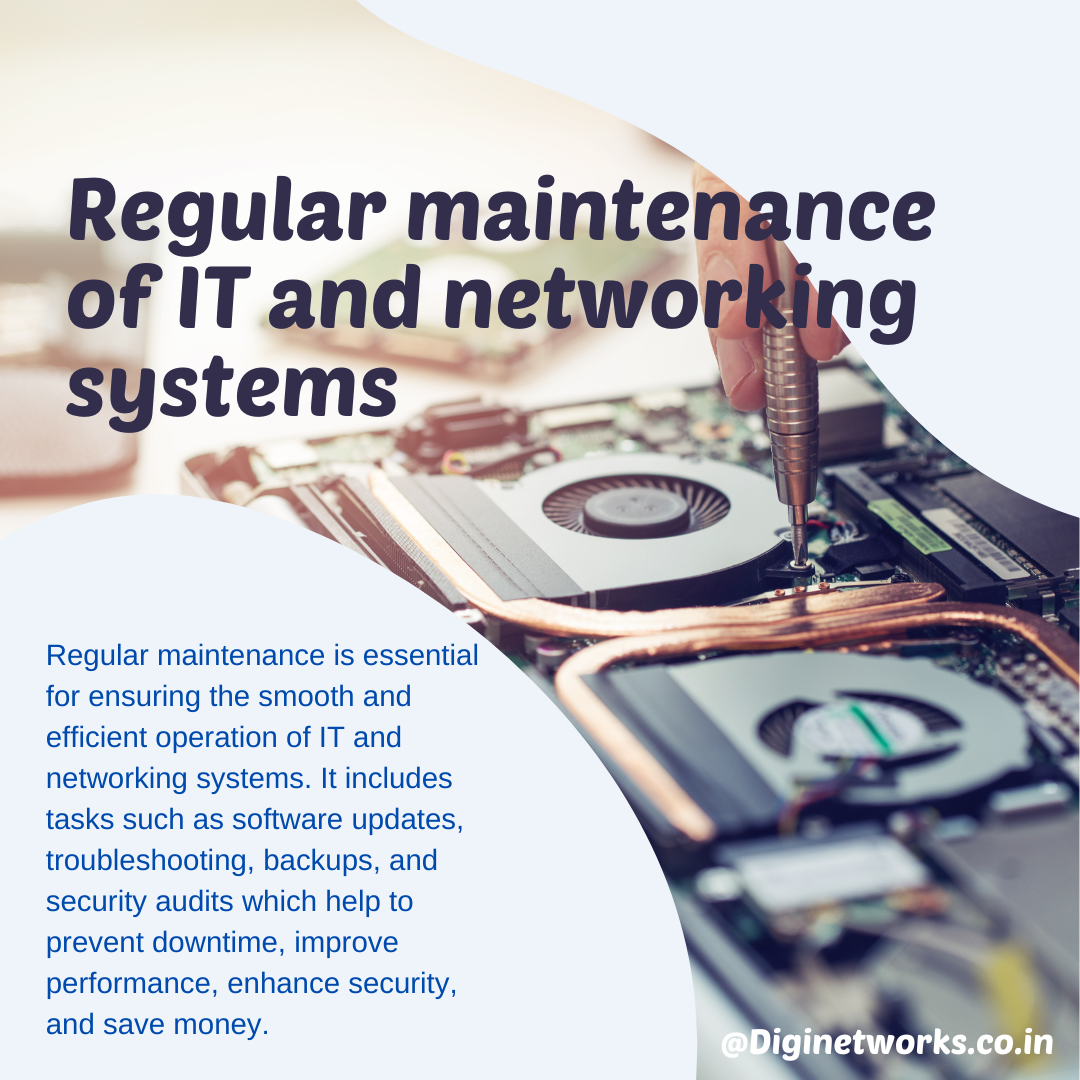Regular maintenance is essential for ensuring the smooth and efficient operation of IT and networking systems. Here are a few key reasons why regular maintenance is so important:
- Preventing downtime: Regular maintenance helps prevent unexpected downtime, which can be costly for businesses. By identifying and fixing potential issues before they cause problems, regular maintenance helps keep systems running smoothly and minimizes the risk of unexpected downtime.
- Improving performance: Regular maintenance can also help improve the performance of IT and networking systems. For example, regular updates and upgrades can help ensure that systems are running the latest software and are able to take advantage of new features and capabilities.
- Enhancing security: IT and networking systems are constantly at risk of security breaches, so regular maintenance is critical for ensuring that systems are secure. Regularly updating software and patching vulnerabilities can help prevent cyber attacks and protect sensitive data.
- Saving money: Regular maintenance can save businesses money in the long run. By identifying and addressing potential problems early on, regular maintenance can help prevent costly repairs and replacements down the road.
- Scheduling Regular Maintenance: Best Practices and Tips for Keeping IT and Networking Systems in Good Working Order
- Keeping software up-to-date: Regular maintenance includes updating software and ensuring that systems are running the latest versions. This is important for ensuring that systems are functioning optimally and are protected against known vulnerabilities.
- Monitoring and troubleshooting: Regular maintenance includes monitoring systems for any issues or errors and troubleshooting problems as they arise. This helps to prevent small issues from becoming larger, more costly problems.
- Backup and disaster recovery: Regular maintenance should include a thorough backup of all important data and a disaster recovery plan to ensure that systems can be quickly and efficiently restored in the event of a failure or outage.
- Compliance: Many industries and organizations have specific regulations and compliance requirements for IT and networking systems. Regular maintenance can help ensure that systems are compliant with these regulations, and can also help identify any potential compliance issues.
- Proactive approach: Regular maintenance is a proactive approach to ensure the good health of the IT and networking systems. It can help to identify potential problems before they occur and resolve them before they cause major issues.
- Cost-effective: Regular maintenance is a cost-effective solution to keep the IT and networking systems up and running. It can help in reducing the overall cost of ownership by avoiding costly repairs and replacements.
Reducing the Overall Cost of Ownership by Avoiding Costly Repairs and Replacements.
In summary, regular maintenance is essential for ensuring the smooth and efficient operation of IT and networking systems, preventing downtime, improving performance, enhancing security, and saving money. Businesses should make sure to schedule regular maintenance for their IT and networking systems to ensure they remain in good working order.
Share this content:

Leave a Reply